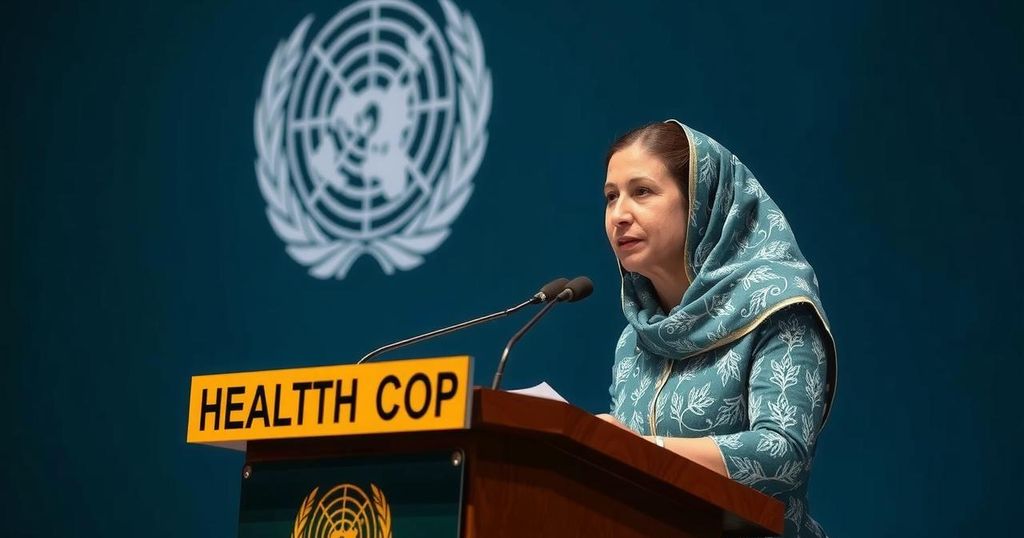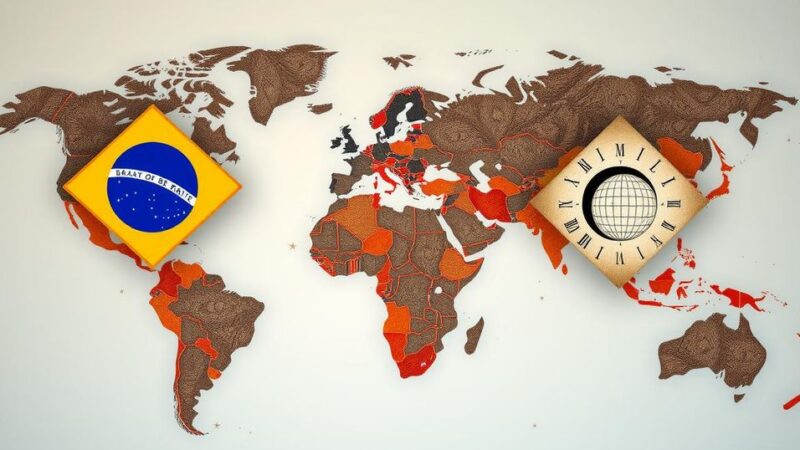At COP29 in Baku, the WHO formed the Baku COP Presidencies Continuity Coalition for Climate and Health to ensure health remains prioritized in climate discussions. Despite this step forward, critics highlight the coalition’s inability to produce concrete commitments to health initiatives in the climate agenda, reminiscent of previous frustrations in UN negotiations. Future discussions are being called upon to translate rhetoric into tangible actions, particularly as COP30 approaches in Brazil.
At COP29 in Baku, the World Health Organization (WHO) convened a high-level session aimed at advocating for health to be prioritized in climate discussions, culminating in a ‘letter of intent’ that establishes the “Baku COP Presidencies Continuity Coalition for Climate and Health” (BCPCCCH). This coalition, which emerged amidst a backdrop of frustration due to a lack of substantive progress in UN climate negotiations, is a collaborative effort by Azerbaijan, previously hosted nations, and Brazil. Although it aims to ensure health remains on future agendas, critics assert that it falls short of demanding formal recognition of health matters in climate talks, despite the overwhelming evidence linking climate change to significant health impacts. The event was notably less glamorous compared to the inaugural COP Health Day in Dubai, with minimal participation from key stakeholders. Azerbaijani Health Minister Teymur Musayev emphasized the coalition’s commitment to integrate climate and health policies, yet provided scant details on actionable objectives. While stakeholders on the frontline of the climate crisis have expressed dissatisfaction with the vague promises of future discussions, the WHO remains optimistic, having secured a permanent place for health in climate dialogues.
The WHO’s effort at COP29 highlights a longstanding struggle to get health recognized as a critical dimension of climate discussions. Despite the growing acknowledgment of the dire health impacts of climate change—such as increased air pollution, extreme weather events, and associated health crises—the integration of health into UN climate negotiations has historically been neglected. The Baku coalition seeks to reconcile this by committing future COP presidencies to prioritize health, even though binding commitments are still lacking in action-oriented terms.
The establishment of the Baku COP Presidencies Continuity Coalition for Climate and Health at COP29 marks a noteworthy yet modest advancement in integrating health into climate agendas. While this coalition symbolizes a critical recognition of health issues within climate negotiations, activists and frontline communities are urging for more concrete and actionable commitments, reflecting the growing urgency of addressing the health impacts of climate change effectively. The upcoming COP30 in Brazil may present an opportunity for more impactful health-centered initiatives, contingent on the current political landscape.
Original Source: healthpolicy-watch.news







